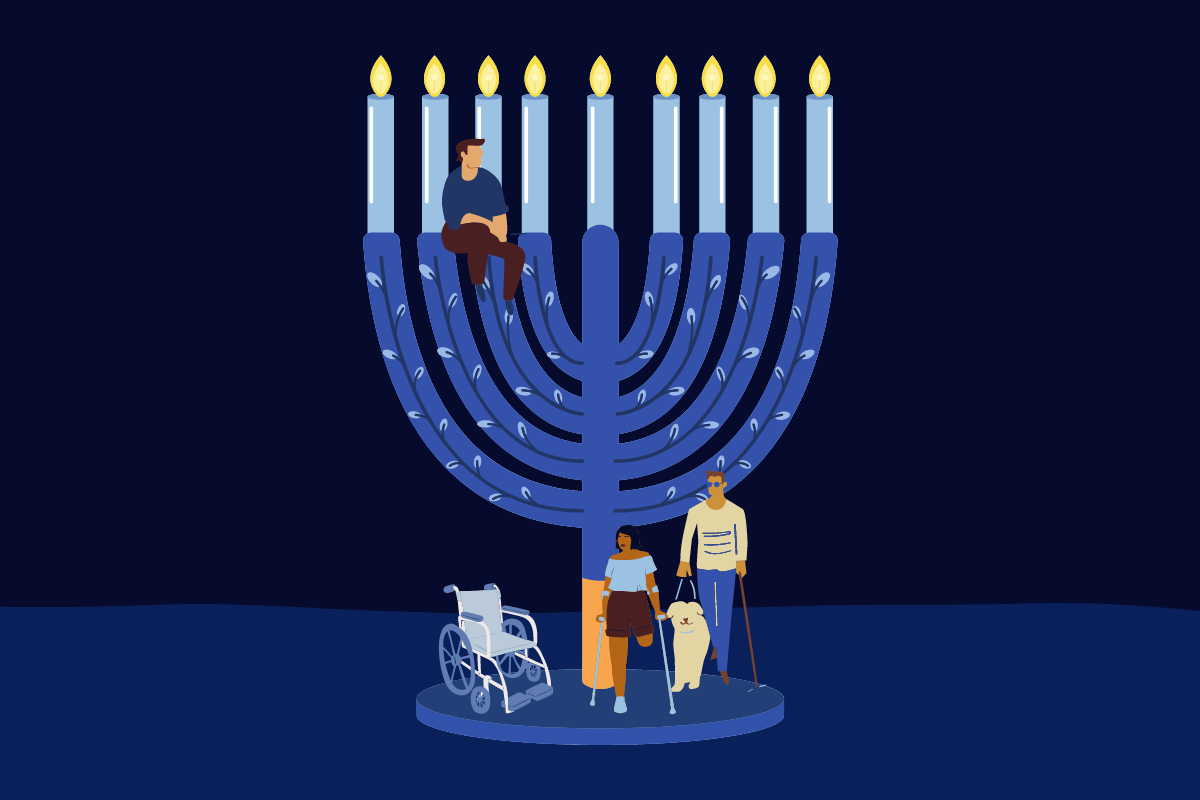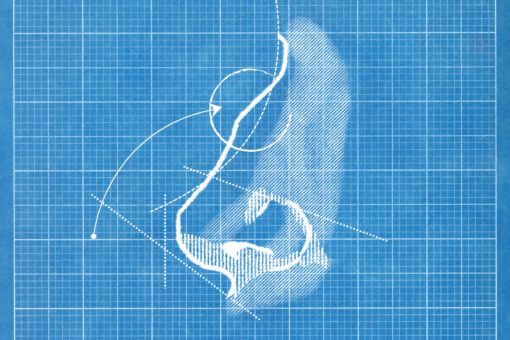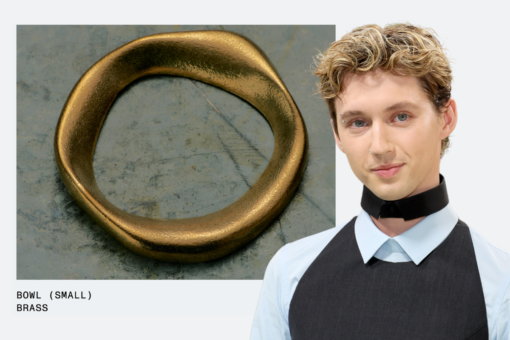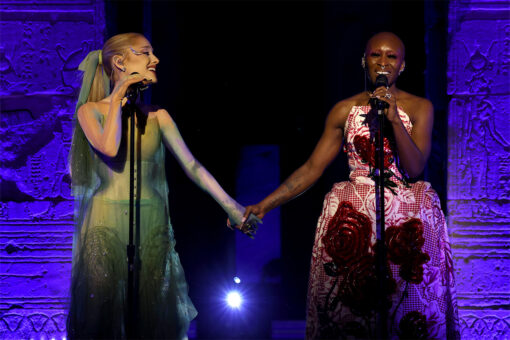For the last few years, as soon as my fiancée and I busted out our menorah and lit the candles for the first night of Hanukkah, I would snap a quick picture on my phone and text it to my mother — and she knew the reason why.
Of course, Hanukkah is a time to celebrate the freedom from oppression and the miracles associated with the holiday. But, for me, interwoven in the themes of oppression and miracles is another reason to celebrate: Disability.
I’ve had a speech disability since I was 3 years old. To be precise, my speech disability manifests as stuttering — or rather, the involuntary disruption of words through prolongations, repetitions and pauses. But somehow, you would barely notice my stutter as I utter the Hanukkah blessings while lighting the candles, since people tend not to stutter when they sing.
It’s kind of ironic that my speech disability doesn’t quite surface during Hanukkah, yet the Festival of Lights serves as a time to reflect on my relationship with disability.
My views on Hanukkah weren’t always like this. As a kid, whenever my mom would take out our menorah from the dining room cupboard, after wiping away the dust that had accumulated over the course of the last 12 months, my mind focused on one thing and one thing only — and it sure wasn’t my disability.
“Time for presents!”
It was understandable. What kid doesn’t get excited about gifts? I was 8 years old, and my parents had a tendency to spoil me and my brother rotten with a gift — usually, for me, the latest action figure — for each night that we lit the candles. It was a hell of a time for us.
But as we got older, our parents felt less inclined to spoil us with presents — at least, not for 8 consecutive days. We still lit the candles, enjoyed my mom’s homemade latkes and exchanged chocolate gelt. But we didn’t make as much of a spectacle about it with elaborate gifts. Rather, we focused on enjoying our time together.
Eventually, I moved out from my parents’ abode and found my own way. Now I live with my fiancée, with whom I developed our own Hanukkah traditions of candle-lighting (and then texting the usual picture to my mom), latke-indulging and unabashedly bellowing the blessing to the amusement of my significant other.
Concurrently, my perceptions of my disability started to change as well. I used to shy away from the fact that I stutter, a feat made possible by avoiding many social situations. But, over time, I started to accept my disability and open up about it. Eventually, I welcomed my speech disability as an appreciated part of my identity, as having a stutter gives me a different outlook on life.
But what do my newfound perceptions of disability have to do with Hanukkah?
Well, in the last few years, I started thinking more about what exactly Hanukkah means to me, as opposed to what it means in general or what I was brought up to associate with the holiday. Let me explain: Growing up, I, like many young Jews, learned about Hanukkah as the celebration of the Maccabee Jews’ prevailing over the oppression of the Syrian Greeks, the last jug of oil found in the Temple and the miracle of the oil lasting the full eight days necessary.
But in recent years, I started to reflect more on the oppressions and miracles not just of the past, but also the oppression we continue to face and the nuanced miracles we see and experience everyday.
Included — and sometimes lost — in this focus on continuous oppressions is disability and the experiences of disabled Jews, and how we navigate issues of inaccessibility and ableism even within the Jewish community.
I don’t generally consider myself a big believer in miracles. However, as I reflect on my disability, I’m inclined to think that there’s perhaps no bigger miracle than my ability to live a fulfilling life in spite of the ableist barriers I often find myself facing.
It wasn’t until pursuing my master’s degree a few years ago that this idea of disability being a miracle entered my mind. I had taken a disability studies course led by Devon Healey, an actor who is visually impaired. During our first class on Zoom, Devon challenged us to take a deep breath, close our eyes and imagine what disability looks like.
Of course, I thought of my stuttering. But then she went a little further.
“What does disability feel like?” she asked.
I had never asked myself that exact question. I really thought about it. What does disability feel like?
As I subscribed to Devon’s request, I started to imagine disability. To me, it felt normal — as normal as having a cup of coffee in the morning. Disability didn’t appear to me as something out of place. As I kept my eyes shut, I visualized the image of a childhood peer: someone I knew my entire life and perhaps didn’t get along with at first. Once appearing dishevelled and antagonistic, this old friend, named “Disability,” resurfaced donning a new look, a new personality and welcoming me with open arms.
That’s when I started to conceptualize disability differently. Disability does not feel like a weakness or something to be fixed, as history, society and the media had previously dictated to me. Instead, I began perceiving disability as merely a different way in which someone views or navigates the world — and there’s something beautiful about that. I think that is a miracle and something to be celebrated during Hanukkah.
So, as I once again sent my mom the yearly picture of our lit-up menorah during the first night of Hanukkah, I smiled to myself as I continued to reflect on my old — and somehow new — friend Disability.



